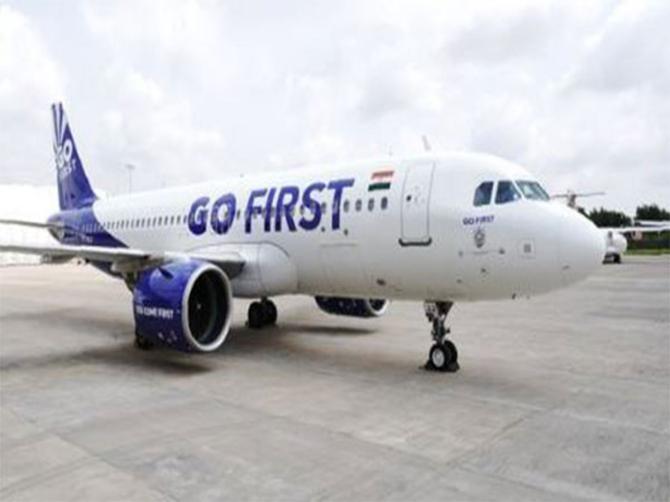Go First suspended its flights and filed an insolvency application, squarely blaming engine manufacturer Pratt & Whitney for its cash crunch.

The presence of an engine maintenance, repair, and overhaul (MRO) facility in India could have prevented Go First airline from going “belly up”, as sending engines abroad for servicing is not an efficient way to operate a carrier, Piyush Srivastava, senior economic advisor, Ministry of Civil Aviation, said in a statement on Tuesday.
On May 3, Go First suspended its flights and filed for insolvency, squarely blaming engine manufacturer Pratt & Whitney (PW) for its cash crunch.
The airline claimed that about half of its 54 aircraft were grounded on May 3 due to a delay in the supply of engines by the US-based company. PW has denied the charges.
Srivastava, delivering a speech at the aviation industry event Aero MRO 2023, said, “Removing the engine here in India, paying a charge to transport it elsewhere while the aircraft is on the ground, or renting another engine — not an efficient way of operating an airline.”
“Our recent experience with Go First is fresh in our memory.
"It probably would not have landed on its belly had we had the requisite MRO services in the country.
"Its supplier, the OEM (PW) in that case, was not in a position to help the airline due to supply chain disruption, and the airline went belly up, which is not a good thing for the aviation sector,” he added.
After Go First airline stopped operating flights on May 3, its lessors put in applications with the Directorate General of Civil Aviation to repossess more than 40 of the airline’s 54 planes.
However, the National Company Law Tribunal on May 10 put a moratorium on all of Go First’s assets, barring the lessors from taking their planes back.
Multiple lessors of Go First have filed an appeal in the higher tribunal and courts to repossess the planes.
Srivastava stated that it is time for the establishment of MRO facilities in the country, as currently, only 15 per cent of Indian carriers’ MRO business is handled in India.
“We handle only 15 per cent. Whatever maintenance work we perform here is at the bare minimum, focusing on line and airframe maintenance,” he noted, highlighting the deficiency in engine and component MRO facilities in India.
“We need to cover the ground in component and engine maintenance, where it matters,” he noted.
Srivastava mentioned that the trump card lies with the airlines, given their substantial orders.
He stated that they can impose a condition on aircraft and engine makers to have an MRO facility in India.
“Sometimes people reach out to me, especially in the defence ministry and other government departments, asking why I don't make it mandatory (to buy planes/engines only from the company that has MRO in India).
"Of course, we have toyed with this idea, but I believe that this amounts to licence permit raj in another form, which I am not fond of,” he said.
The easier route is that the airline industry themselves realise that this is something they have to do, he noted.
India stands out as a major purchaser of aircraft, with major domestic airline operators such as Air India and IndiGo placing two of the world’s largest aircraft orders with Airbus and Boeing in 2023.
Despite ranking as the third-largest global aircraft buyer, India faces a notable scarcity of engine MRO centres.
Consequently, approximately 92 per cent of the engine MRO business is outsourced to other nations.
The Indian MRO industry’s total size is expected to grow substantially from about $1.7 billion in 2021 to about $4 billion by 2031.












 © 2025
© 2025